Sheep farming is an important sector of the Dutch agricultural sector. The country has a long tradition of sheep husbandry, and today there are approximately 1.5 million sheep in the Netherlands. Most Dutch sheep are found in the southern and eastern provinces of the country.
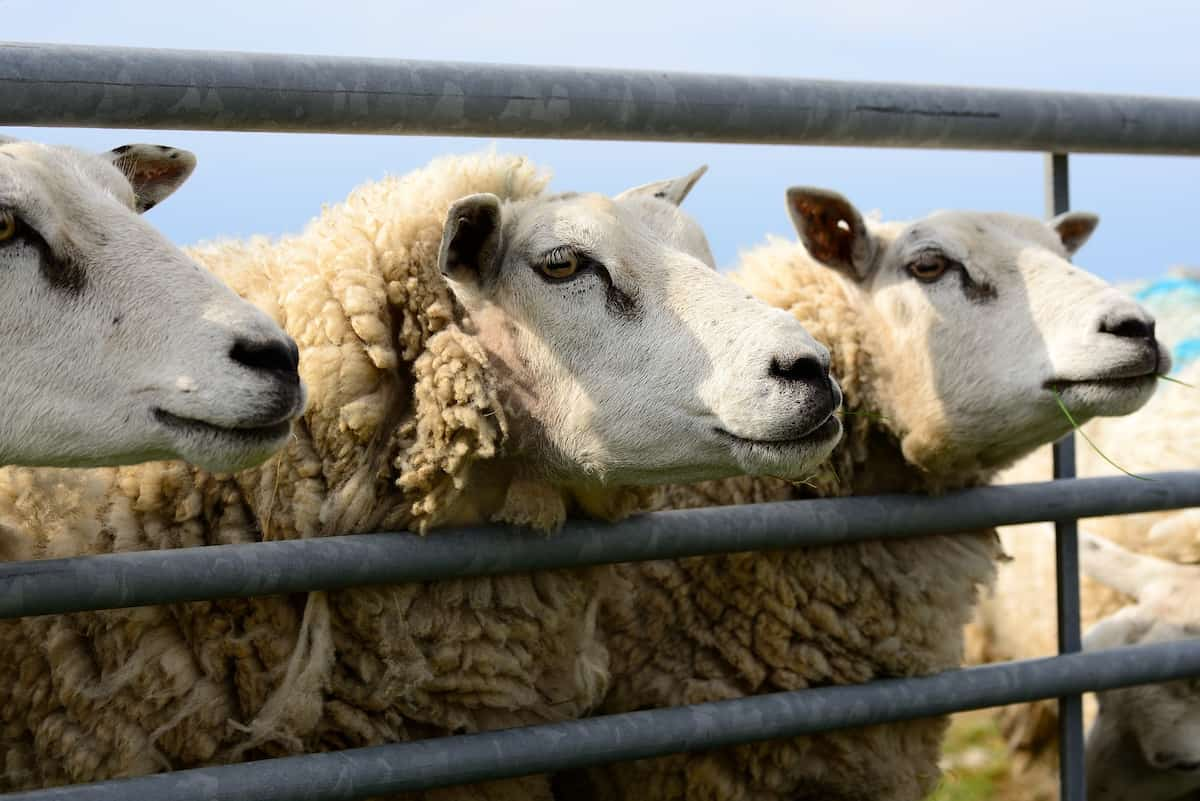
How to start sheep farming in the Netherlands
Is sheep farming profitable in the Netherlands?
One of the main reasons that sheep farming can be profitable in the Netherlands is the high demand for wool. The Netherlands is home to several textile companies that use wool to produce various products, from clothing to carpets. As a result, there is always a need for high-quality wool, which farmers can provide. In addition, the Dutch climate is well-suited for raising sheep. The cool, damp weather is ideal for sheep, and the ample grasslands provide plenty of grazing opportunities.
This means that farmers do not have to spend as much on food and shelter for their flock, which can further increase profitability. Of course, as with any farming, there are also risks involved in sheep farming. The most significant risk is the possibility of disease outbreaks among the flock. But by taking proper precautions and investing in quality animals, farmers can minimize this risk and maximize their chances for success.
The profitability of sheep farming varies depending on the size of the farm. Smaller farms are less profitable than larger ones due to higher production costs per unit. However, many small-scale sheep farms in the Netherlands are still profitable thanks to specialized marketing and efficient production methods. The country has a long history of sheep farming, and the industry significantly contributes to the economy. In recent years, the profitability of sheep farming has been increasing due to the rising demand for wool and other sheep products.
Zero-grazing sheep farming in the Netherlands
In the Netherlands, sheep are farmed using a method called zero grazing. This means that the animals are not allowed to graze on any pasture or grassland but are instead confined to a sheltered shed where they are fed a diet of hay and other dry feeds. The main benefit of the zero-grazing system is that it reduces the risk of disease transmission between sheep, as they are not in contact with wild animals or contaminated vegetation.
It also allows farmers to monitor their flock’s health and nutrition closely, as all of the animals are contained in one location. However, zero-grazing sheep farming can be more expensive than traditional methods, as it requires more labor and animal feed. There is also a risk that the animals will become stressed and bored if they are not provided enough stimulation in their environment.
In case you missed it: How to Start Dairy Farming in the Netherlands: Business Plan, Cost, Profit, Subsidy Loan, and Challenges
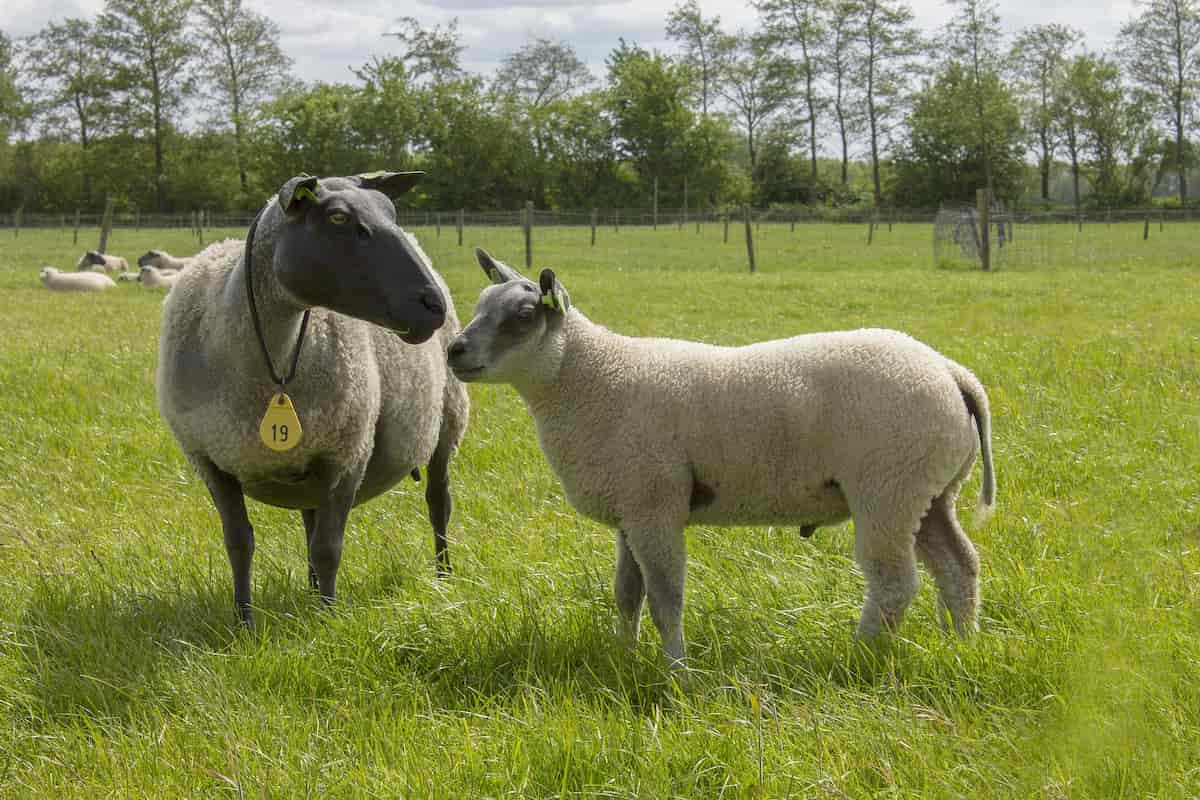
Sheep farming for beginners in the Netherlands
If you’re thinking of starting a sheep farm in the Netherlands, there are some tips you need to know. Firstly, sheep farming is not as common in the Netherlands as in other countries like New Zealand or Australia. However, there is still a demand for sheep products like wool and meat. To start a sheep farm in the Netherlands, you need to have a piece of land that is large enough to accommodate your flock.
You will also need to build pens and shelters for your sheep. Finally, it’s important to ensure that your fences are tall and strong enough to keep your sheep from escaping. The next step is to select the right breed of sheep for your farm. There are many types of sheep, so research to determine which would suit your climate and grass type. Once you’ve chosen a breed, buy some ewes (female sheep) and rams (male sheep).
Now it’s time to start breeding your flock. The best time to breed ewes is during the summer months. After the lambs are born, they need to be cared for and fed until they’re old enough to sell. Sheep farming can be a rewarding experience, both financially and emotionally. If you’re willing to put in the work, it can be a great way to provide for yourself and your family.
Sheep farming areas in the Netherlands
The Netherlands has a long tradition of sheep farming. The first sheep were brought to the country by the Romans, and they have been farmed here ever since. It is an important part of the Dutch economy and many different types of sheep farms in the Netherlands. The Netherlands’ main sheep farming areas are North Holland, South Holland, Zeeland, and Groningen. There are also several sheep farms in the eastern part of the country.
Most sheep farms in the Netherlands are located in rural areas, but there are also some urban sheep farms. It is an important economic activity in rural areas of the Netherlands. Sheep provide meat, wool, and milk. In addition, they play a role in maintaining the landscapes of these areas. Sheep grazing helps to keep grasslands healthy and prevents them from becoming overgrown with weeds. This benefits both farmers and wildlife.
In case you missed it: How to Start Organic Farming in the Netherlands: Crops, Schemes, Business Plan, Cost, and Profit
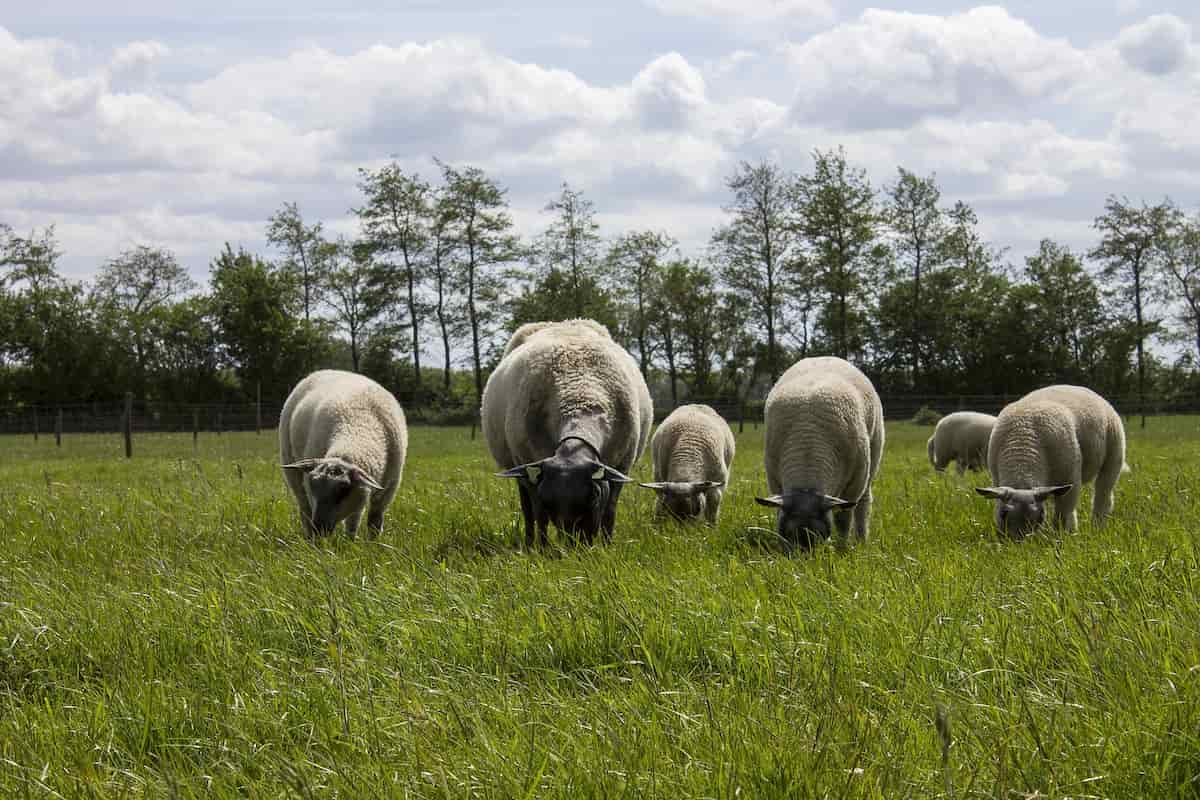
The benefits of sheep farming in the Netherlands
The Netherlands is a large agricultural sector. It is an important part of the Dutch agricultural industry, providing many benefits to the country.
- Sheep farming in the Netherlands is highly efficient and productive. The climate and landscape of the country are well suited for sheep farming, and the Dutch farmers have developed extensive experience and knowledge in this area. As a result, sheep farms in the Netherlands can produce high-quality wool and meat at a relatively low cost.
- This efficiency has several benefits for the Dutch economy. Firstly, it makes sheep products more affordable for Dutch consumers. Second, it allows the Netherlands to export sheep products to other countries at a competitive price. Finally, it helps to create jobs in rural areas of the country.
- In addition to these economic benefits, sheep farming has positive environmental impacts. Sheep grazing can help to maintain grassland ecosystems, and wool production requires far less energy than synthetic fiber production. As a result, sheep farming can significantly contribute to sustainable development in the Netherlands.
Sheep breeds in the Netherlands
There are several different breeds of sheep that are farmed in the Netherlands. The most common breed is the Texel, which is a dual-purpose breed that is used for both meat and wool production. Other popular breeds include the Dutch Spelsau, Drenthe Heath, Texel sheep, Zwartbles, Blue Texel sheep, Beltex, Suffolk, Charollais, Dutch Landrace, Ijsselmeer, East Friesian, and Lleyn. The province of Zeeland has the most sheep farms, followed by South Holland and North Brabant.
Sheep feeding management in the Netherlands
In the Netherlands, sheep are typically fed a hay, grass, and grain diet. The food type they eat depends on the season and what is available. In the summer, sheep graze on grass and clover. When less grass is available in the winter, they are fed hay. Grain is fed to sheep when they are pregnant or nursing. A sheep’s food needs depend on age, weight, and health. A healthy adult sheep will eat about 2% of its body weight in food each day.
For example, a healthy adult sheep weighing 100 pounds will eat about 2 pounds of food daily. Sheep have access to fresh water. They will drink about 0.5% of their body weight in water each day. For example, a healthy adult sheep weighing 100 pounds drink about 0.5 pounds of water daily.
In case you missed it: How to Start Poultry Farming in the Netherlands: Business Plan, Breeds, Management, Cost, and Profit
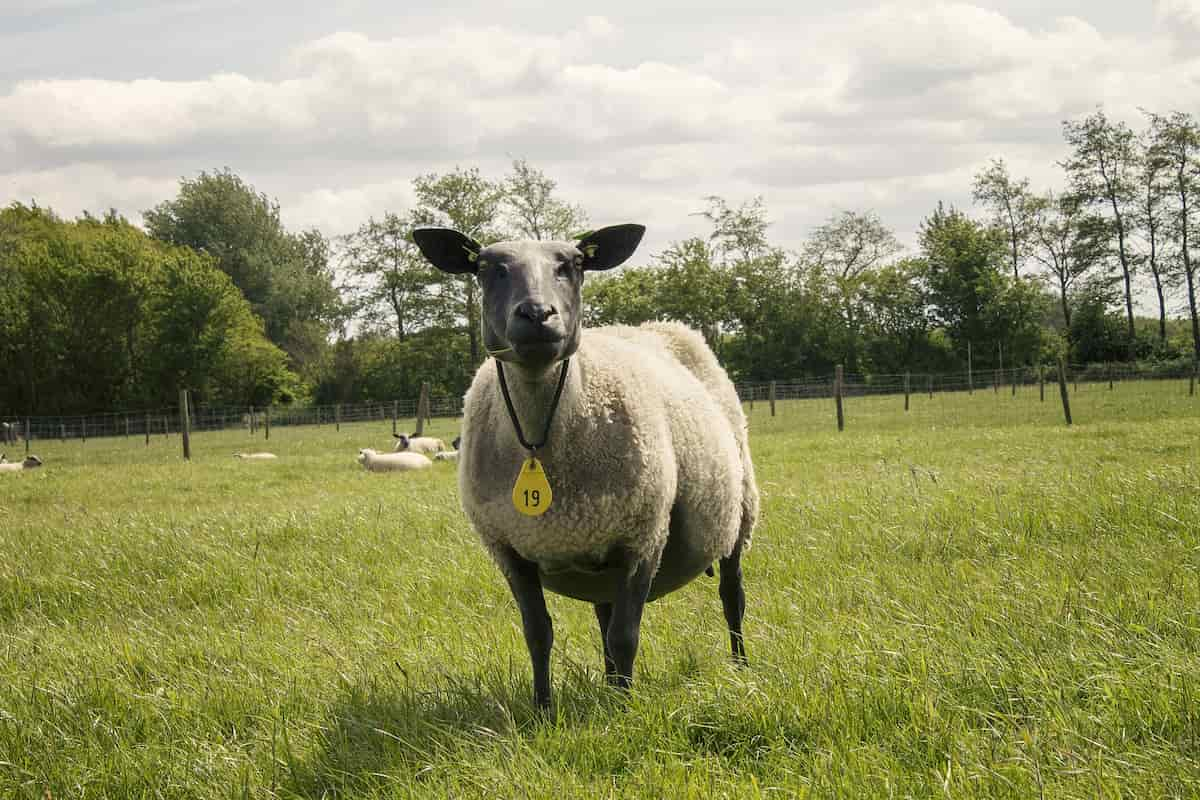
Sheep farming business plan in the Netherlands
If you are looking to start a sheep farming business in the Netherlands, remember a few points. Firstly, the Netherlands is a small country with limited farmland. This means that competition for pasture and hay fields is high, and you will need to be able to secure enough land for your flock. Secondly, the Netherlands has a wet climate, which can pose challenges for raising sheep. You will need to ensure your sheep have access to shelter and dry bedding and that they are protected from the elements as much as possible.
Thirdly, as the Dutch sheep industry is quite well-developed, you will need to be able to compete with established businesses. This means having a well-thought-out business plan and offering something unique or better than what is already available. Finally, running a successful sheep farm takes hard work, dedication, and patience. If prepared for these challenges, starting a sheep farming business in the Netherlands can be a rewarding experience. Below are the steps to follow for starting a sheep farming business in the Netherlands;
- Decide if you want to raise sheep for meat, wool, or both.
- Choose the right breed of sheep for your purposes.
- Obtain the necessary licenses and permits.
- Build or purchase appropriate housing and fencing for your sheep.
- Acquire a healthy flock of sheep.
- Implement a sound feeding and grazing plan.
- Provide adequate health care for your flock.
- Keep good records of your flock management practices.
- Market your meat, wool, or both as desired.
- Enjoy the satisfaction that comes from being a successful sheep farmer.
Sheep farming types in the Netherlands
There are three main types of sheep farming in the Netherlands: extensive, semi-intensive, and intensive.
- Extensive sheep farming is the Netherlands’ most traditional and common type. It involves grazing sheep on large tracts of land, typically on natural pasture or heather. This type of sheep farming is relatively low-cost and labor-intensive.
- Semi-intensive sheep farming is a more intensive form of sheep farming that involves grazing sheep on smaller tracts of land, often using the supplemental feed. This type of sheep farming is more costly and labor-intensive than extensive sheep farming but can result in higher yields.
- Intensive sheep farming is the most intensive form of sheep farming and involves raising sheep in confinement, often using artificial lighting and heating. This type of sheep farming is very costly and labor-intensive but can result in very high yields.
Commercial sheep farming in the Netherlands
Commercial sheep farming in the Netherlands is a relatively new industry, having only begun in earnest in the early 1990s. However, it has quickly become an important part of the Dutch economy, with sheep meat and wool constituting a significant export.
There are now over 700 commercial sheep farms in the Netherlands, with a total flock of around 200,000 animals. These sheep farms are mostly located in the southern province of Limburg, where the climate suits sheep husbandry. The Dutch sheep industry is focused on producing high-quality meat and wool products for export.
In case you missed it: How to Start Pig Farming in the Netherlands: Business Plan, Breeds, Cost, Profits, and Management
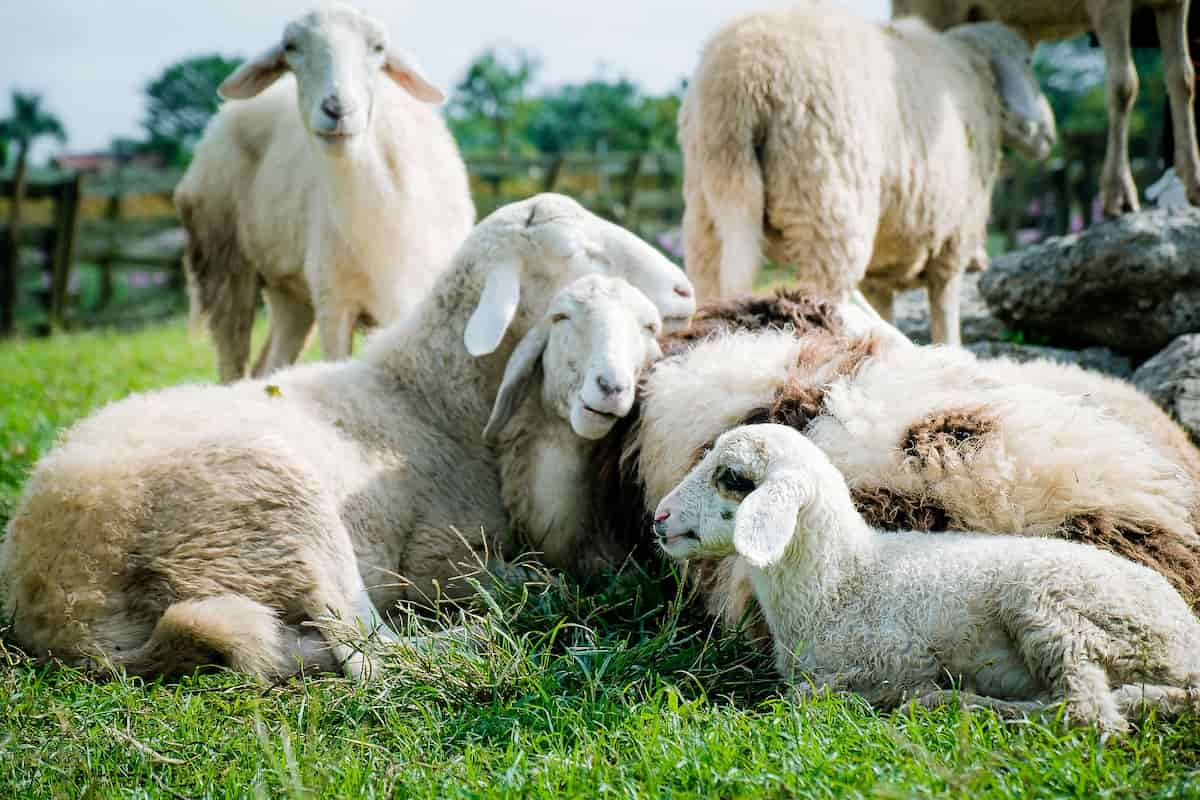
Sheep farming loans in the Netherlands
In the Netherlands, sheep farming is a popular form of agriculture. To finance their sheep farms, Dutch farmers often take out loans. There are many different types of sheep farming loans available in the Netherlands. The most common type of loan is a business loan. Business loans can be used to finance the purchase of land, equipment, and other necessary expenses.
Another type of loan that Dutch farmers often use is a government grant. Government grants are typically available for projects that improve the environment or promote sustainable agriculture. Sheep farming loans in the Netherlands can be obtained from banks, credit unions, and other financial institutions. However, farmers should compare interest rates and terms before choosing a lending institution.
The benefits of sheep farming in the Netherlands
Sheep farming in the Netherlands is a centuries-old tradition that benefits the country and its people. The sheep provide wool for clothing and other products, meat for consumption, and milk for cheese. They also help to keep the landscape tidy by grazing on grass and other vegetation. The Dutch sheep industry is largely based on small family farms, typically run by husband-and-wife teams.
This operation allows for a close relationship between the farmers and their animals, resulting in better care and higher-quality products. Sheep farming also provides opportunities for sustainable land management. When managed properly, sheep can improve the condition of the land they graze on by preventing soil erosion and increasing biodiversity. These factors make sheep farming an important part of the Dutch economy and culture. Moreover, it is a traditional way of life that benefits those who engage in it.
Sheep farming problems in the Netherlands
Several problems can affect sheep farming in the Netherlands. These include disease, parasites, predation, and weather.
- The disease is a major problem for sheep farmers in the Netherlands. Several diseases, including foot rot, scab, and lice, can affect sheep. Foot rot is a bacterial infection that affects sheep’s feet and can lead to lameness. Scab is a contagious skin disease that causes itching and hair loss. Lice are parasitic insects that feed on sheep’s blood and can cause anemia.
- Parasites are also a problem for sheep farmers in the Netherlands. Gastrointestinal worms are the most common type of parasite that affects sheep. These worms live in sheep’s gut and can cause weight loss, diarrhea, and anemia.
- Predation is another problem that can affect sheep farming in the Netherlands. Foxes are the most common predator of sheep in the Netherlands. Other predators include cats, dogs, and birds of prey.
- Weather is also a factor that can affect sheep farming in the Netherlands. Sheep are particularly vulnerable to cold weather and snowstorms. In extreme weather conditions, sheep may be lost due to exposure or starvation.
In case you missed it: How to Start Fish Farming in the Netherlands: Business Plan, RAS, Breeds, Set up Cost, Profit, and Management
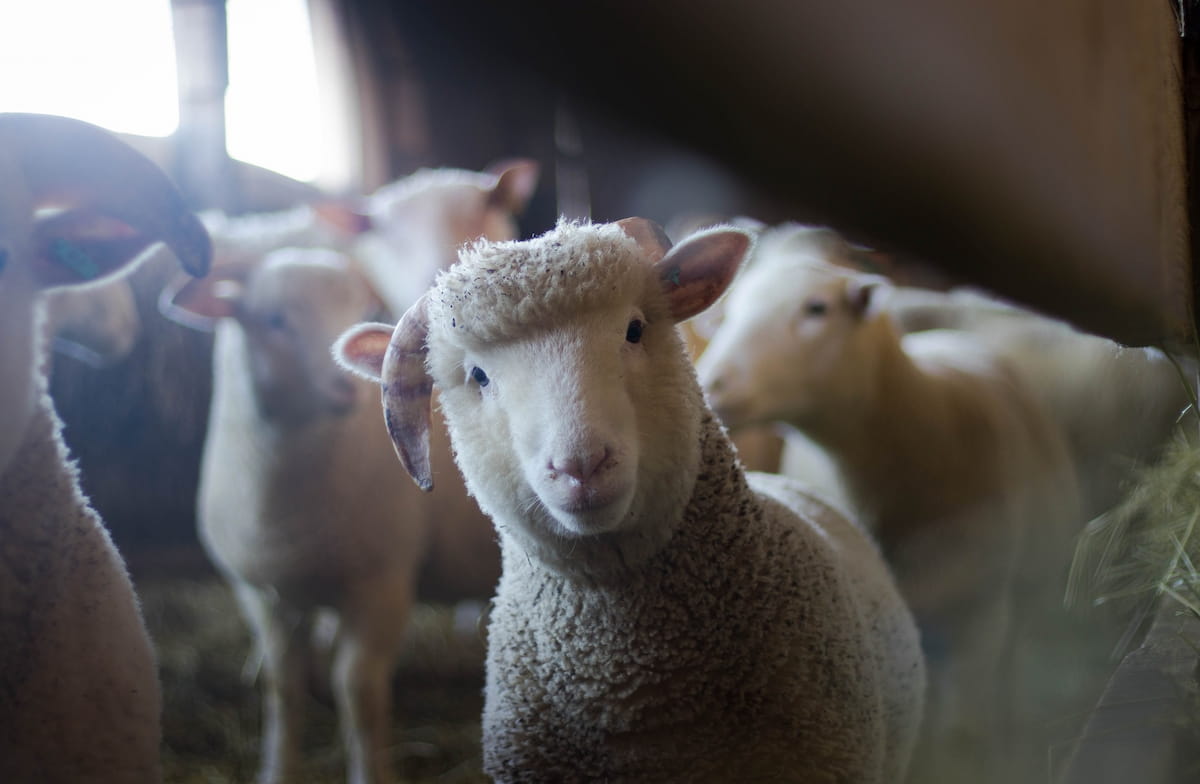
Sheep farming set up cost in the Netherlands
The initial setup cost can be quite high if you start a sheep farm from scratch in the Netherlands. You will need to purchase or lease land for your farm and build appropriate shelters for your sheep. The cost of land and construction will vary depending on the size and location of your farm. While the initial investment can be significant, once your farm is up and running, the ongoing costs are relatively low. With proper management, a sheep farm can be a profitable venture.
The average cost of a sheep farming setup in the Netherlands is between €1,500 and €2,000. This includes buying sheep, fencing, and other necessary equipment. The cost of setting up a sheep farm in the Netherlands can be higher if you buy organic sheep or use another type of housing besides a traditional Dutch barn.
The challenges of sheep farming in the Netherlands
- The amount of land required for grazing – Sheep, need a lot of space to graze, and in the Netherlands, the land is expensive and often in short supply. This means that farmers must be creative in how they use their land and often have to supplement grazing with hay or other feed.
- Dealing with predators – Foxes and other predators can be a problem for sheep farmers in the Netherlands. As a result, farmers must protect their flocks by using guard dogs or electric fences.
- The weather – The Netherlands can have extreme weather conditions, from hot summers to cold winters. This can make it difficult to keep sheep comfortable and healthy. Therefore, farmers must be prepared for all kinds of weather conditions and know how to care for their sheep.
Conclusion
Sheep farming in the Netherlands mostly focuses on meat production, although there is also a significant wool industry. According to the Dutch Ministry of Agriculture, sheep farming is a very profitable sector in the Netherlands. The country has a long history of sheep farming, and the industry significantly contributes to the economy. In recent years, the profitability of sheep farming has been increasing due to the rising demand for wool and other sheep products.
- Types of Pesticides Used in Agriculture: A Beginner’s Guide
- Economical Aquaculture: A Guide to Low-Budget Fish Farming
- 15 Common Planting Errors That Can Doom Your Fruit Trees
- How to Make Houseplants Bushy: Effective Tips and Ideas
- Innovative Strategies for Boosting Coconut Pollination and Yield
- Pollination Strategies for Maximum Pumpkin Yield
- The Complete Guide to Chicken Fattening: Strategies for Maximum Growth
- Natural Solutions for Tulip Problems: 100% Effective Remedies for Leaf and Bulb-Related Issues
- Revolutionizing Citrus Preservation: Towards a Healthier, Greener Future
- Natural Solutions for Peony Leaf and Flower Problems: 100% Effective Remedies
- Maximizing Profits with Avocado Contract Farming in India: A Comprehensive Guide
- Natural Solutions for Hydrangea Problems: 100% Effective Remedies for Leaf and Flowers
- The Ultimate Guide to Choosing the Perfect Foliage Friend: Bringing Life Indoors
- From Sunlight to Sustainability: 15 Ways to Use Solar Technology in Agriculture
- The Ultimate Guide to Dong Tao Chicken: Exploring from History to Raising
- The Eco-Friendly Makeover: How to Convert Your Unused Swimming Pool into a Fish Pond
- Mastering the Art of Delaware Chicken Farming: Essentials for Healthy Backyard Flocks
- 20 Best Homemade Fertilizers for Money Plant: DIY Recipes and Application Methods
- How to Craft a Comprehensive Free-Range Chicken Farming Business Plan
- Brighten Your Flock: Raising Easter Egger Chickens for Beauty and Bounty
- How to Optimize Your Poultry Egg Farm Business Plan with These Strategies
- Subsidy for Spirulina Cultivation: How Indian Government Schemes Encouraging Spirulina Farmers
- Ultimate Guide to Raising Dominique Chickens: Breeding, Feeding, Egg-Production, and Care
- Mastering the Art of Raising Jersey Giant Chickens: Care, Feeding, and More
- Ultimate Guide to Raising Legbar Chickens: Breeding, Farming Practices, Diet, Egg-Production
- How to Raise Welsummer Chickens: A Comprehensive Guide for Beginners
- How to Protect Indoor Plants in Winter: A Comprehensive Guide
- Ultimate Guide to Grow Bag Gardening: Tips, Tricks, and Planting Ideas for Urban Gardeners
- Guide to Lotus Cultivation: How to Propagate, Plant, Grow, Care, Cost, and Profit
- Agriculture Drone Subsidy Scheme: Government Kisan Subsidy, License, and How to Apply Online
- Ultimate Guide to Raising Araucana Chickens: Breed Profile, Farming Economics, Diet, and Care
- Bringing Hydroponics to Classroom: Importance, Benefits of Learning for School Students
- Ultimate Guide to Raising Polish Chickens: Breed Profile, Farming Economics, Diet, and Care
- Ultimate Guide to Raising Australorp Chickens: Profile, Farming Economics, Egg Production, Diet, and Care
- Silkie Chicken Farming: Raising Practices, Varieties, Egg Production, Diet, and Care
- Sussex Chicken Farming: Raising Practices, Varieties, Egg Production, Diet and Care